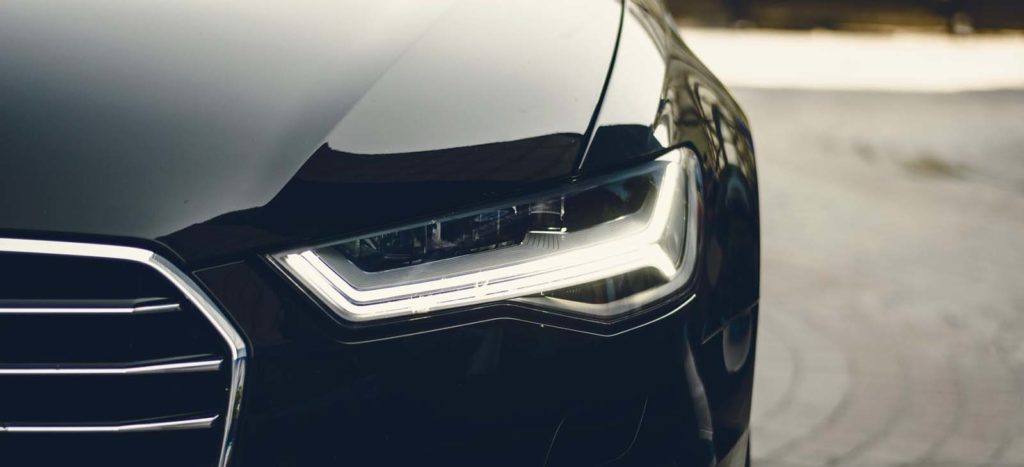Bankruptcy has a big impact on your lifestyle, including car ownership. Whether you own the car outright or are in the middle of a finance deal, there will be a number of things you will have to consider.
Much will depend on your individual circumstances and the final decision made by the official receiver. To give you some insight, below we go into more detail about how going bankrupt could affect your vehicle.
Can I get car finance if I am bankrupt?

Entering into bankruptcy will not prevent you from applying for car finance. However, as the process will negatively impact your credit score, it will be much harder for you to gain approval.
During the period of bankruptcy, if you apply for credit worth more than £500 (which will be the case with a car finance deal) you are required to inform the lender of your financial status.
It is also worth bearing in mind that any further refusals of credit will impact on your credit score further. Given how difficult it may be to get a car finance deal during bankruptcy, it may be better to wait until you have been discharged so you can start to rebuild your credit score and apply at a later date.
If at any point you are unsure about your current credit score, you can get a free report from Experian, Equifax or TransUnion.
However, there are some dealers who will offer special deals especially for people with bad credit. If you are successful with your application with these providers they are likely to request a higher deposit compared to someone with a good credit history. The APR (annual percentage rate) attached to the loan is also likely to be higher than normal too, as lenders will view you as a greater risk.
Will I have to sell my car if I go bankrupt?
If you enter bankruptcy you may be allowed to keep a car you own outright if it is viewed as essential and non-excessive in value. A car deemed to be essential will fall into one of these categories:
- You will not be able to retain your job with out
- The car is needed for you or someone else in the household with a disability
- You are unable to journey to and from work/school without the car
If there are no alternative modes of transport available to cover the above, your car will likely be approved as being essential to your household. However, the value of the car also plays a role, and you may be told to buy a cheaper alternative and pay the difference to the official receiver so it can be used to cover bankruptcy admin costs and to repay creditors.
This usually occurs for vehicles worth more than £1,500 in England and Wales, with the official receiver typically setting a limit of £1,000 to buy a replacement. Alternatively, if a relative, partner or friend can give the official receiver the money they would expect from a sale, this could allow you to keep your current vehicle.
What happens to a hire purchase car when you’re bankrupt?

Hire purchase and conditional sale agreements only become your property once the final payment is made, which means the official receiver cannot sell the car while it is being paid off.
During the assessment of your finances made by official receiver, they may allow you to include hire purchase payments in your living costs budget if the car is essential for:
- Driving to and from school as there are no other transport alternatives
- Performing the tasks needed to retain your job and income
- Helping you or someone else in your household who has a disability
Hire purchase or conditional sale agreements that end before you are discharged from bankruptcy will mean that ownership is transferred to the official receiver. Depending on the value of the car, they may decide to sell it, or allow you to keep it, also taking into account the above stipulations.
Some hire purchase or conditional sale agreements may also feature a termination clause that comes into effect if you are made bankrupt. In situations like this, the lender is able to reclaim the car and sell it to recover costs. This varies from lender to lender, so it is a good idea to be upfront with the company to discuss your options, as they may also allow you to retain the car.
Bankruptcy and the Motability Scheme
If you have a Motability vehicle that is covered by attendance allowance, disability living allowance (DLA) or personal independence payment (PIP), this cannot be sold by the official receiver as it is classed as a lease agreement and is not owned by you. This will allow you to retain use of the car throughout the bankruptcy without fear of losing access.
Can I get car finance if I’ve been bankrupt before?
If you have been bankrupt and since discharged, you are still able to apply for car finance deals. One of the biggest determining factors on whether or not you are successful will come down to how long it has been since you were discharged from bankruptcy, and how much your credit score has recovered since.
Before making an application, a good start point is to request a copy of your credit file for free to see what your score currently is. This will give you a good indication of how likely it is that your application will be granted.
Getting a car finance deal after bankruptcy is similar to making an application during bankruptcy, as your credit score is likely to be very low (depending on how soon after being discharged you apply). Dealers that offer specialist bad credit packages will probably request a higher deposit compared to someone with better credit, while the APR rate is also likely to be higher.

